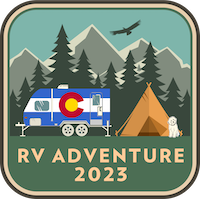Did I choose to write this post? Or was it chosen for me?
We almost have the house back in order after the cataclysm two weeks ago. One upside to reconstructing the basement is that lots of books have to be put back in place and this has given me the pleasure of rediscovering a bunch of titles I’d forgotten about.
This past week I grabbed two volumes, completely at random, on two separate trips to the toilet: Stephen Hawking’s The Universe in Nutshell and The Oxford Companion to Philosophy. Admittedly, not exactly bathroom fare, but such was what laid about en route.
And this is where it gets odd. Not too far into my first, um, session I randomly opened the philosophy encyclopedia to the entry on Molina, Luis de (1535 – 1600). Molina was a Spanish theologian best known for his doctrine of “middle knowledge,” a way of reconciling human free will with the predetermination implicit in the idea of divine grace:
Middle knowledge, God’s knowledge of what persons would do under any set of circumstances, enables God to arrange for certain human acts to occur by pre-arranging the circumstances surrounding a choice without determining the human will.
Basically Molina has it both ways. God has foreknowledge of what humans will do but only because he knows all the possible choices that humans can freely make in the omnipotently-arranged circumstances. He doesn’t direct people’s actions, just sets the stage. And because He set it, He gets to know the possible acts that can be played out on it. The elegance of this proposition, it seems to me, is that it comports with a purely rational view of the world. Remove the deity from Molina’s equation and it is still entirely valid as a description of how people act.
During my next visit to the W.C, I had the Hawking book, a really beautiful follow-up to his Brief History of Time. Just flipping it open I landed in chapter three where he discusses histories of the universe:
Even if the boundary condition of the universe is that it has no boundary, it won’t have just a single history. It will have multiple histories …. There will be a history in imaginary time corresponding to every closed surface, and each history in imaginary time will determine a history in real time. Thus we have a superabundance of possibilities for the universe. What picks out the particular universe that we live in from the set of all possible universes?
Hawking’s answer invokes the “anthropic principle” which basically states that “the universe has to be more or less as we see it, because if it were different, there wouldn’t be anyone here to observe it.” Might seem like circular reasoning, but it makes complete sense, especially if you flip it around: humans would not exist to think about alternate universes in the first place if we did not inhabit one that could sustain intelligent life. So that’s why we’re in this one.
We can conceptualize alternate histories (e.g., one in which I posted about how much I love taco pizza instead of this rambling) and posit parallel universes that behave differently than ours, but we can only ever know the one we’re carving a path through. Not because the choices have been made for us, but because we are choosing from the finite number of paths that are permissible given the universe we live in.
Now, I’m no philosopher and, though I really did want to be an astrophysicist when I was little, I am regrettably not a member of that profession either. But it seems to me that Molina and Hawking are describing the same thing, essentially. Or something very similar, anyway. Haven’t fully parsed it all out yet.
In a way, both acknowledge that the sum of one’s choices — one’s personal “history” — is constrained in some external way (Molina by God; Hawking by the physical properties of the universe). What I find interesting is that they both also suggest a kind of human obliviousness to this constraint that allows us to live as though we were fully in control. Whatever I’m reading into these two passages, it is strangely comforting to me.
And the fact that I just randomly opened to two passages both related to free will? Well that’s just spooky.
See also: “Gone out of experience”













